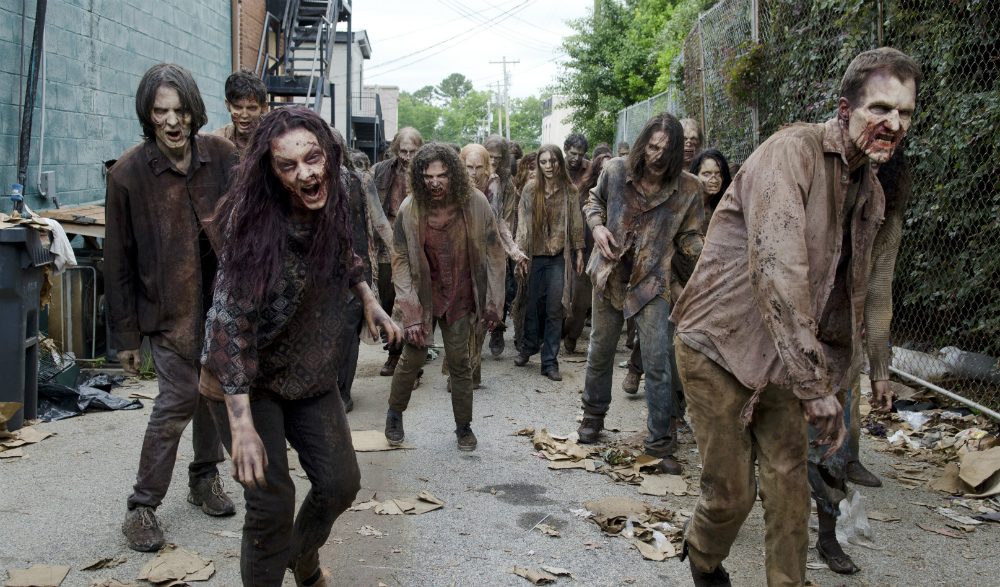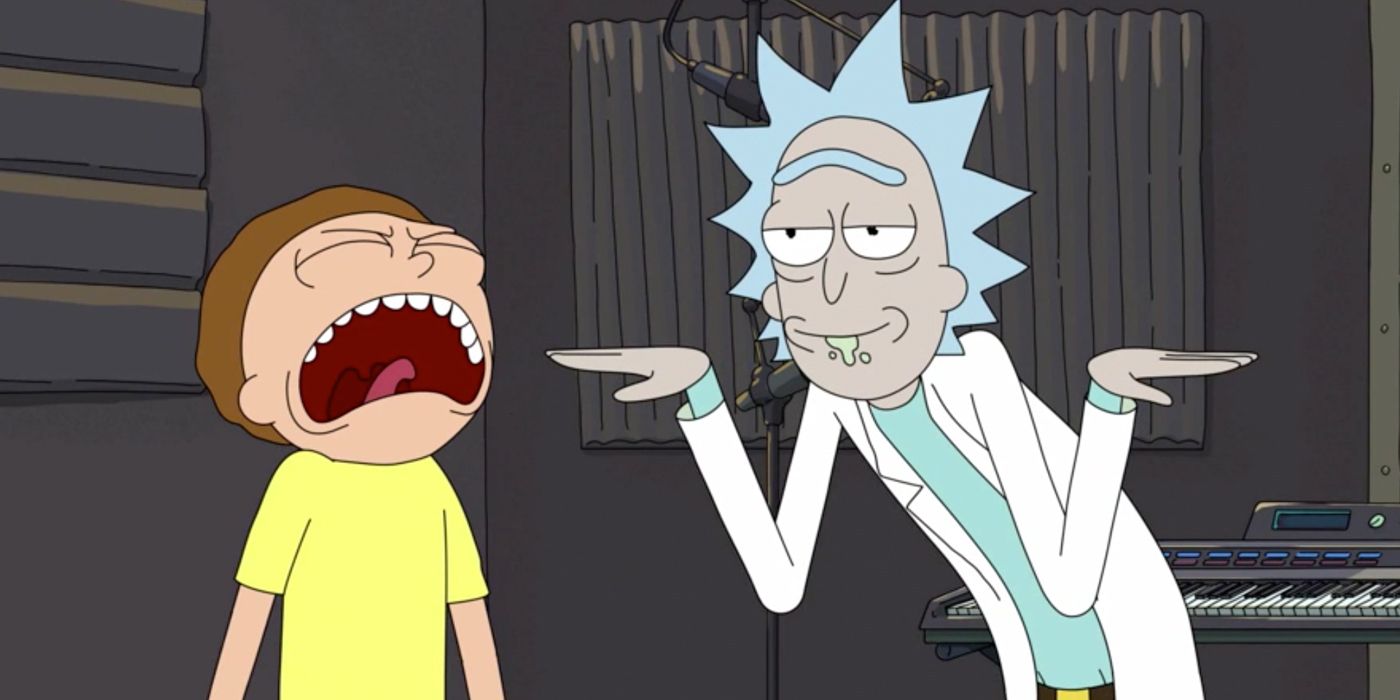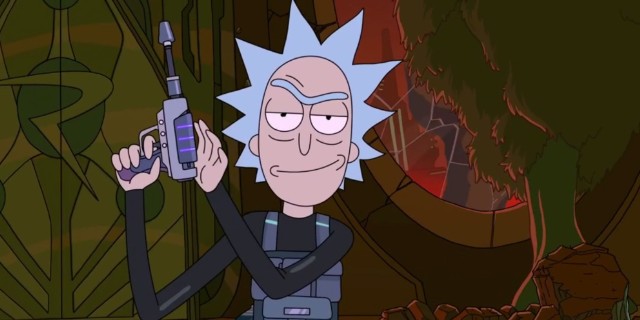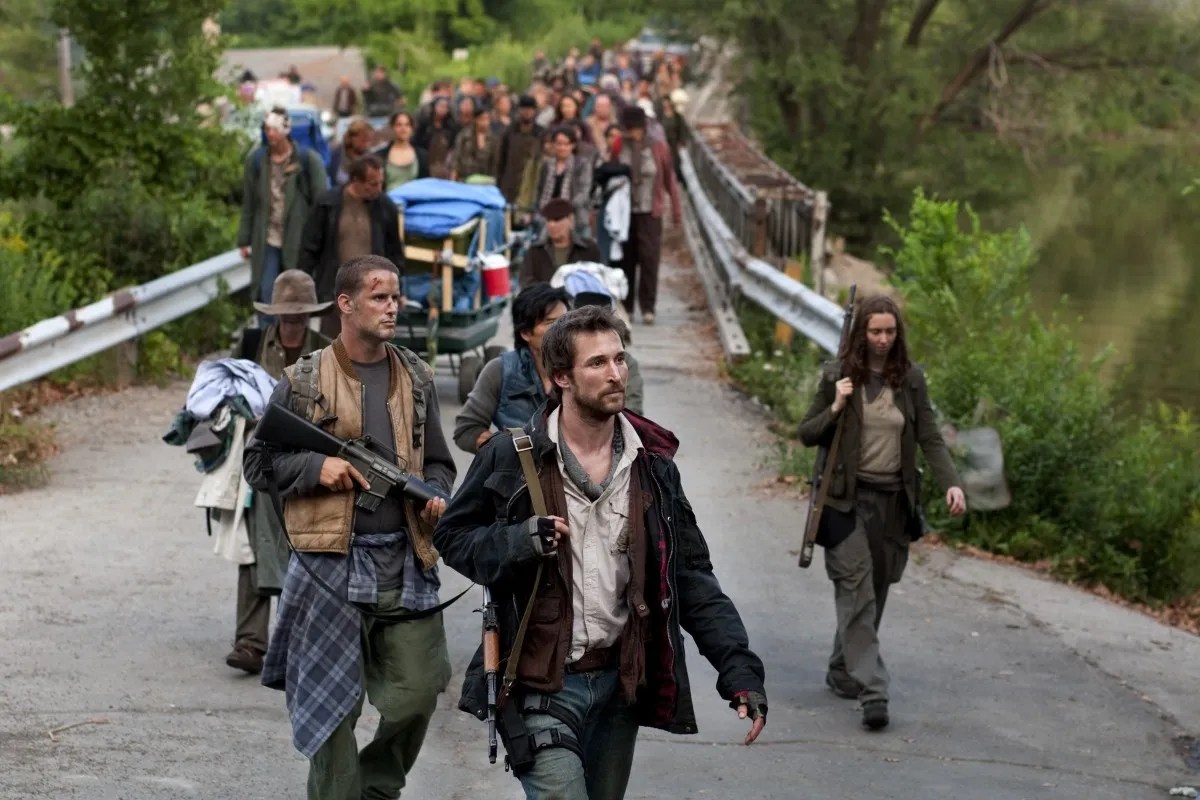
What is it about the apocalypse that fascinates us so much? Why do movies about zombies, machine uprisings, and overall societal collapse appeal to us? Is it just the dramatic, action-packed stories they evoke that thrills us? Could there be something more to that appeal?
While I enjoy a good apocalyptic tale every now and then, I don’t consider myself a fan of the genre. In general, I opt for more hopeful and optimistic stories about the future and the present. I can still appreciate movies like “World War Z” and TV shows like “The Walking Dead,” but it’s not the kind of story that appeals to me, in general.

Even so, I don’t deny that there is a certain appeal to it. I’m not just talking about apocalyptic stories either. For some, the idea of a world in which civilization has collapsed has an innate allure that goes beyond zombies, killer robots, or even invading aliens. To some extent, that appeal is directly related to the flaws of civilization itself.
To appreciate those flaws and where the apocalypse fits in, it’s necessary to reference a show that has a knack for conveying complex philosophical insights in a way that’s both entertaining and hilarious. Yes, I’m referring to “Rick and Morty” again. No, I’m not apologizing for that.

In the same way this show has conveyed complexities of nihilism and the burdens of genius, this show also does a better job than most at conveying the unique appeal of the collapse of civilization. It does this through two episodes, “Rick Potion Number 9” and “Rickmancing The Stone.” While the details are subtle, as is often the case with “Rick and Morty,” the message is clear.
Simply put, the fruits of modern civilization are debilitating, dehumanizing, and soul-crushing for the vast majority of people. If you’re rich, good looking, and well-connected, then civilization is fantastic for you. You can get pretty much whatever you want and you can get other people to do all the hard stuff you don’t want to do.
If you’re everyone else, though, you’re kind of stuck. Throughout “Rick and Morty,” Rick Sanchez doesn’t hide from that fact. His nihilistic commentary on life, death, and everything in between makes clear that civilization is just a few extra inconveniences to an undisputed super-genius who can build a nuclear reactor out of pond scum.

However, it’s through characters like Jerry Smith, Rick’s perpetually mediocre son-in-law, that the true weight of modern civilization becomes clear. To some extent, Jerry represents all the non-Ricks of the world. They don’t have the benefits of good looks, deep pockets, or god-like genius navigate civilization. They’re basically stuck working for the scraps.
Both myself and most people reading this probably have more in common with Jerry than they care to admit. We work jobs we don’t like to make just enough money to survive in a society where simply living is both overly-complicated and expensive by modern infrastructure, law, and economics. For most people, just living in a decent place with a manageable mortgage payment and good WiFi is the most they can hope for.
In the apocalypse, though, everything is simpler. All those complexities of modern civilization go out the window. Life is no longer defined by your ability to find a job, pay the bills, stay out of jail, and not piss off the wrong people. It’s defined by your ability to survive day-by-day. It basically resets our society back to its tribal roots.

For some, that’s a horrible setback because it means they actually have to work, sweat, and toil for their survival rather than relying on underpaid peasants. For most, though, it’s a massive equalizer. Suddenly, your money, your fancy clothes, and your tax bracket don’t matter. All that matters is your ability to survive another day.
In “Rick Potion Number 9,” Rick and Morty’s antics bring about the complete collapse of civilization. In the process, Jerry Smith gets a chance to be something other than the guy that modern society walks all over because of his inherent mediocrity. Suddenly, he doesn’t need genius, looks, or connections to thrive. He just needs an ability to hold a crow bar and fight monsters.
In “Rickmancing The Stone,” this breakdown of civilization and equalization of stakes gets an even greater push, albeit without Jerry. He still plays a part in the story, but only to the extent that it’s clear just how much modern civilization crushes people like Jerry whose skills are too limited to thrive. Conversely, a “Mad Max: Fury Road” style apocalypse simplifies the types of necessary skills.
In that world, and nearly every other apocalyptic narrative for that matter, you don’t need to go to a fancy college, invest in complex industry, or network with rich elites. You just need to be willing and able to learn basic survival skills, like hunting, foraging, self-defense, and basic crafts. Most people with moderate hand-eye coordination and a little grit can learn those skills.
These are skills that go back to the basics of our hunter/gatherer past. They’re skills that still manifest today, both with rugged outdoor-lovers and in societies that have collapsed, albeit on a non-zombie, non-global scale. Whatever the circumstances, though, the end results are the same. The apocalypse doesn’t just simplify the stakes. It requires us to be egalitarian in the most pragmatic way possible.

Think of all the petty divisions we currently deal with, from identity politics to philosophical debates to never-ending feud between “Star Wars” fans and “Star Trek” fans. In the face of an apocalypse, all that stuff becomes meaningless. Disagreements over feminism and masculinity don’t matter. Clashes between liberals and conservatives don’t matter. Complex economic theories don’t matter.
To some extent, that is appealing. Sure, it also means no internet, no TV, no movies, no social media, and no media of any kind. It also means no air conditioning, no electricity, no modern medicine, and no modern comforts. That may limit the appeal, but at the same time, it removes the complications that comes with those amenities.
Let’s face it. They are complications that get pretty infuriating. In the modern world, you can’t just survive. You have to have a career. You have to have some sort of profitable skill. Even if you do, that’s no guarantee you’ll gain the respect you want, attract the mates you want, or establish yourself as a productive member of your community.

In the world of the apocalypse, it doesn’t matter how many Twitter followers you had or likes you got on FaceBook. It doesn’t matter how many friends you had in high school, how many matches you won on “Overwatch,” or how many dumb things you did as a kid. When society, civilization, and infrastructure collapse, none of that matters. You’re essentially free to just live and survive.
For the Jerry Smiths of the world, the apocalypse would be the perfect make-or-break scenario. You either show that you’re willing to work, fight, and survive or you die. That’s all there is to it. It’s simple, blunt, and uncomplicated. You have just as much an opportunity as some guy who went to an overpriced prep school. Even if you fail, you fail on your own accord.
That said, there’s also a dark side to that appeal. While “Rick and Morty” double down on the dehumanizing, degrading nature of modern civilization, other shows like “The Walking Dead” show how it can take people who would be unremarkable in a civilized society and turn them into monsters. That’s how a high school football coach can become a tyrannical, but charismatic dictator.

Like modern civilization, the apocalypse affects people in different ways. Some, like Jerry Smith and Negan, might actually thrive in it. Others won’t be able to handle it, having become too comfortable with the trappings of civilization. That’s something that modern survivalist groups bank on and, should the apocalypse ever come, we’ll see how much or how little that pays off.
Personally, I hope that day never comes. It’s not just because I probably wouldn’t last long in an apocalypse. I’ve never gone camping, I don’t have any survival training, and I’m not sure how I’ll react to a zombie. I think that while modern civilization has its flaws, it has more long-term potential than any apocalypse, by default.
Since much of that potential is still unrealized, although we are making progress, the apocalypse will still have more appeal to the vast majority of people who feel trapped by the rigid complexity of modern civilization. They can only do so much with their lives and there’s only so much they have to risk.

Then again, maybe that’s something both civilization and the apocalypse have in common. As Rick Sanchez once said, “To live is to risk it all. Otherwise, you’re just an inert chunk of randomly assembled molecules drifting wherever the universe blows you.” It’s just easier to do that in the apocalypse because, with or without zombies, the stakes are simpler and clearer for everyone.



Pingback: Reflecting On The Greatest Advice Rick Sanchez Ever Gave Us | Jack Fisher's Official Publishing Blog